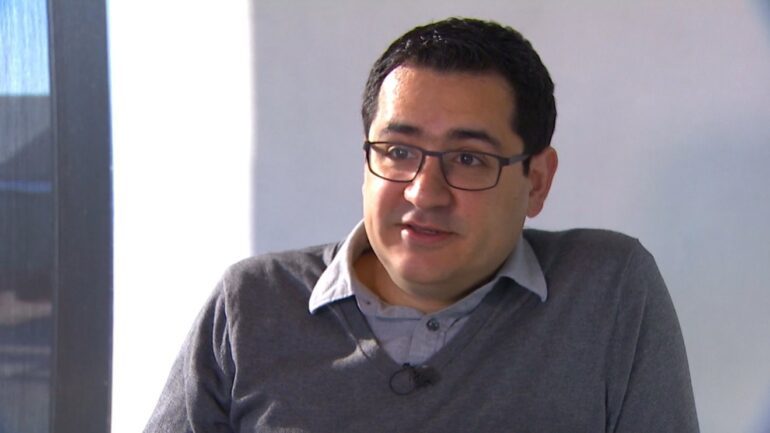TL;DR:
- Renowned computer vision specialist Ali Farhadi was appointed as CEO of Allen Institute for Artificial Intelligence (AI2).
- Farhadi previously led Apple’s machine learning efforts and founded AI startup Xnor.ai, which later sold to Apple for $200 million.
- Farhadi takes over from Oren Etzioni, who remains involved with AI2 as a board member and advisor.
- Farhadi’s appointment comes at a crucial time for generative AI technologies and aims to solidify AI2’s position.
- AI2 is an independent nonprofit organization distinct from Microsoft-backed OpenAI, with strategic funding sources and a startup incubator.
- Farhadi’s extensive experience as an executive, entrepreneur, academic, and researcher will drive AI2’s future success.
- AI2’s relationship with the University of Washington’s Paul G. Allen School of Computer Science and Engineering will continue under Farhadi’s leadership.
- AI2’s independence, expertise, and initiatives like OLMo (Open Language Model) contribute to shaping the future of AI and bridging academia and industry.
Main AI News:
In a significant move that highlights the growing prominence of artificial intelligence (AI), renowned computer vision specialist Ali Farhadi has been named the CEO of the Seattle-based Allen Institute for Artificial Intelligence (AI2). Farhadi, who previously spearheaded Apple’s machine learning endeavors, will bring his expertise and entrepreneurial acumen to lead the non-profit research organization.
Farhadi’s return to AI2 follows his successful tenure as the CEO of Xnor.ai, an AI startup that he founded and later sold to Apple in a remarkable $200 million deal. This acquisition stands as one of AI2’s most notable commercial achievements to date, underscoring the institute’s contribution to the advancement of AI technologies.
As the new CEO, Farhadi assumes the mantle from Oren Etzioni, who played a pivotal role in launching AI2 a decade ago at the behest of late Microsoft co-founder Paul Allen. While Etzioni steps down from his position, he will continue to support AI2 as a board member, advisor, and technical director of the AI2 Incubator. In the interim period, AI2 research leader Peter Clark has been serving as the acting CEO.
Farhadi’s appointment comes at a crucial juncture when generative AI technologies fueled by extensive language models are captivating global attention. His mandate is to solidify and enhance AI2’s standing in the field, leveraging its unique status as an independent nonprofit organization.
Acknowledging the evolving landscape of AI, Farhadi expressed his enthusiasm for returning to AI2, stating, “Today more than ever, the world needs truly open and transparent AI research that is grounded in science and a place where data, algorithms, and models are open and available to all.” His profound commitment to fostering open AI research aligns perfectly with AI2’s mission.
Currently employing approximately 200 individuals, AI2 has been instrumental in pioneering breakthroughs within the field. While Microsoft-backed OpenAI has garnered significant attention with its AI technologies, including ChatGPT and GPT-4, AI2’s independent nonprofit status sets it apart. Farhadi’s strategic vision and leadership will be instrumental in cementing AI2’s position as a key player in the AI landscape.
AI2’s funding sources have been expanding in recent years, with Vulcan Inc., founded by Allen, primarily backing the organization. Additionally, AI2’s startup incubator has raised a substantial $30 million investment fund, further contributing to its growth and development.
While the specific details of AI2’s funding and long-term plan remain undisclosed, the appointment of Farhadi underscores the organization’s commitment to sustainability and continued progress. With his extensive experience as an executive, entrepreneur, academic, and researcher, Farhadi possesses a rare blend of skills that will drive AI2’s future success.
Ed Lazowska, a professor of computer science at the University of Washington and an AI2 board member, commented on the extensive search process that ultimately led to Farhadi’s selection. From over 50 candidates, Farhadi emerged as the top choice, thanks to his exceptional qualifications. Lazowska also emphasized the strong relationship between AI2 and the University of Washington’s Paul G. Allen School of Computer Science and Engineering, a bond nurtured by Etzioni and set to continue under Farhadi’s leadership.
Looking ahead, Lazowska emphasized the critical role AI2 will play in shaping the future of AI. He underscored the organization’s independence and expertise as vital assets, particularly in an era where AI’s impact will be profoundly felt. AI2’s recently announced OLMo (Open Language Model) initiative stands as a testament to its commitment to driving advancements that bridge the gap between academia and industry.
Conclusion:
The appointment of Ali Farhadi as the CEO of the Allen Institute for Artificial Intelligence signifies the organization’s commitment to advancing AI technologies and solidifying its position in the market. Farhadi’s expertise and entrepreneurial acumen, combined with AI2’s independent nonprofit status, provide a unique advantage in the evolving landscape of AI. With strategic funding sources, a startup incubator, and initiatives like OLMo, AI2 is poised to play a crucial role in shaping the future of AI and fostering collaboration between academia and industry.

